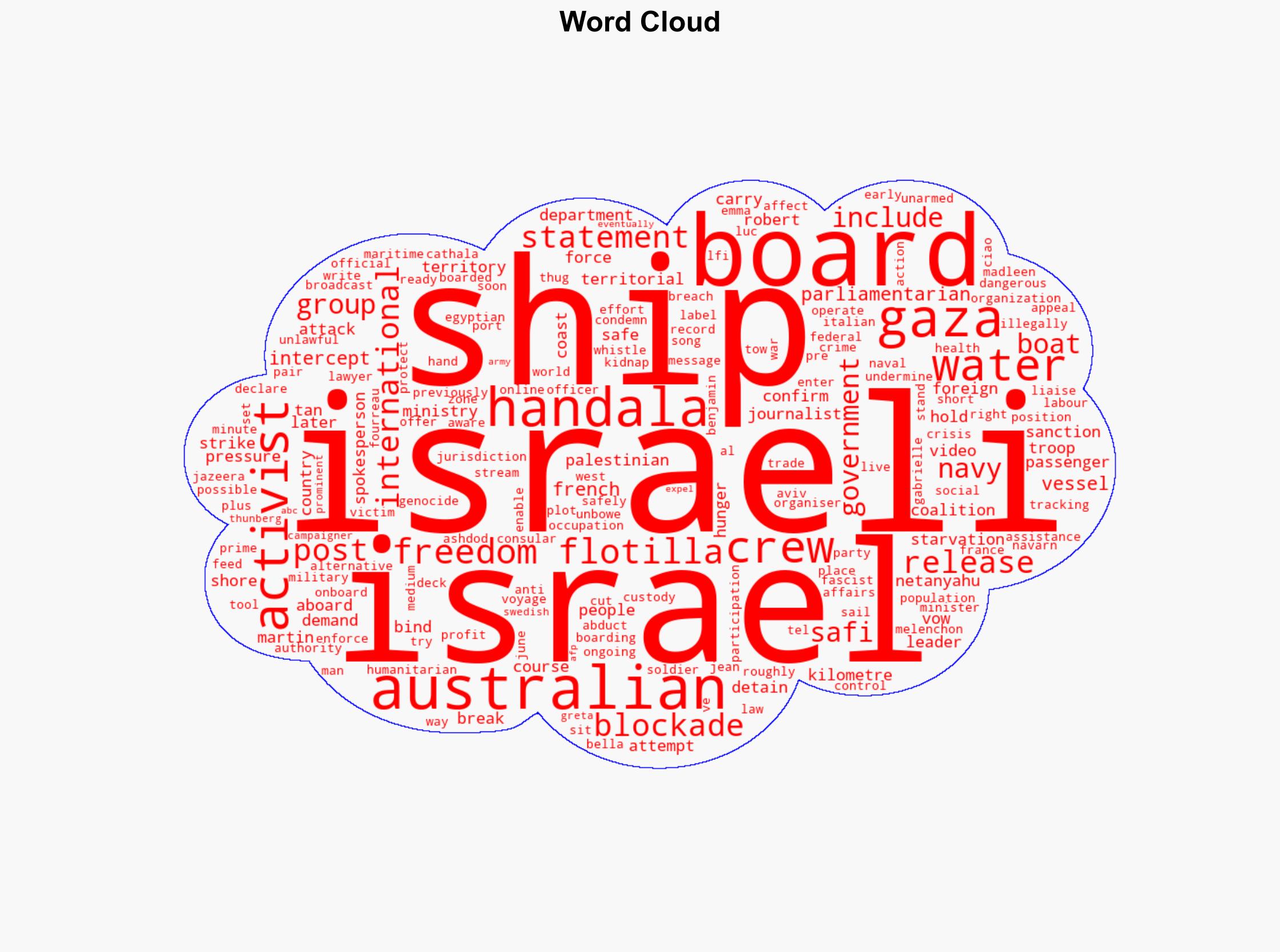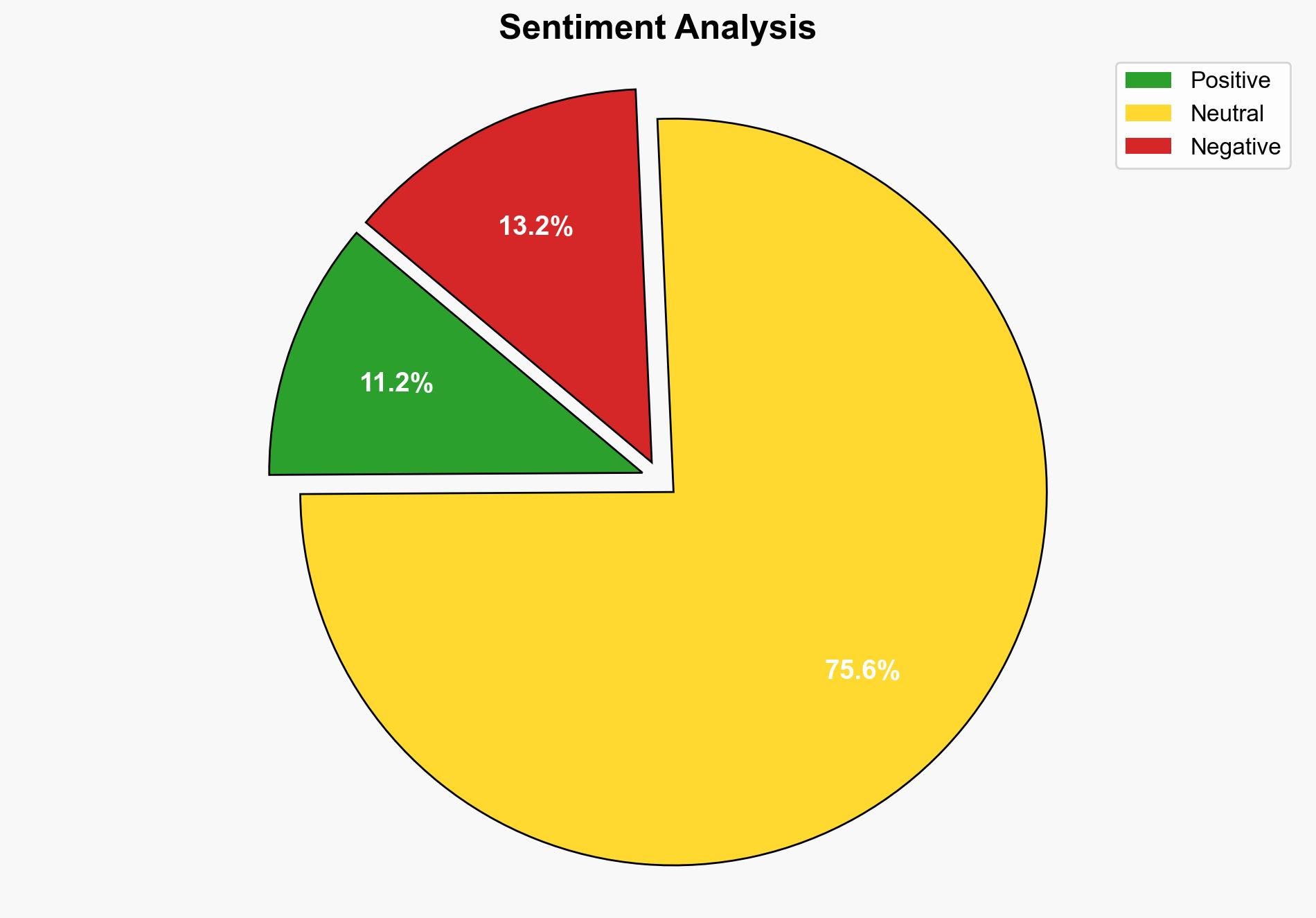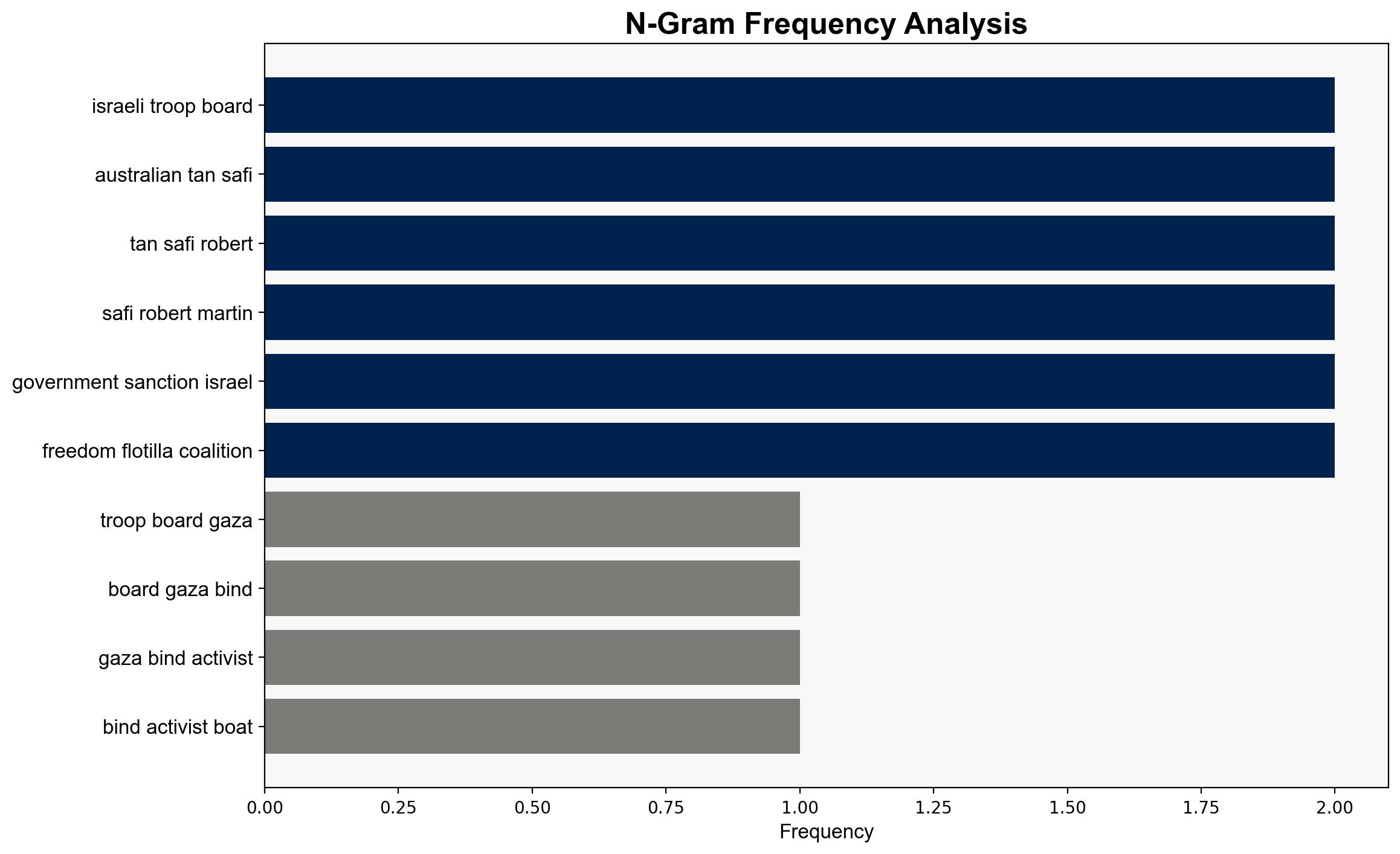Australians detained after Israeli troops board Gaza-bound aid boat – ABC News (AU)
Published on: 2025-07-27
Intelligence Report: Australians detained after Israeli troops board Gaza-bound aid boat – ABC News (AU)
1. BLUF (Bottom Line Up Front)
The most supported hypothesis is that the Israeli interception of the Gaza-bound aid boat was a preemptive measure to enforce its naval blockade policy, which it views as essential for national security. This hypothesis is supported by Israel’s consistent stance on enforcing the blockade and the international legal complexities surrounding such actions. Confidence level: Moderate. Recommended action: Monitor diplomatic responses and assess potential shifts in international support or condemnation that could impact regional stability.
2. Competing Hypotheses
1. **Hypothesis A**: The Israeli navy’s interception of the aid boat was a routine enforcement of the naval blockade to prevent unauthorized entry into Gaza, aimed at maintaining security and preventing the smuggling of weapons.
2. **Hypothesis B**: The interception was a politically motivated action intended to send a message to international activists and governments about Israel’s firm stance on its Gaza policies, possibly exacerbating tensions and drawing international criticism.
3. Key Assumptions and Red Flags
– **Assumptions**: Hypothesis A assumes that the blockade is primarily a security measure and that Israel’s actions are consistent with international law. Hypothesis B assumes a higher degree of political motivation and potential disregard for international norms.
– **Red Flags**: The lack of detailed information on the cargo and intentions of the activists could skew interpretations. The international waters’ location raises legal questions about jurisdiction and the legitimacy of the interception.
– **Blind Spots**: Potential bias in the portrayal of events by involved parties and media outlets could influence public perception and diplomatic reactions.
4. Implications and Strategic Risks
– **Geopolitical Risks**: Increased tensions between Israel and countries with nationals aboard the vessel could lead to diplomatic disputes and impact bilateral relations.
– **Humanitarian Concerns**: The blockade’s enforcement may exacerbate humanitarian conditions in Gaza, drawing further international scrutiny and potential sanctions.
– **Escalation Scenarios**: Continued interceptions could lead to more aggressive actions by activist groups or retaliatory measures by affected countries, increasing regional instability.
5. Recommendations and Outlook
- Engage in diplomatic dialogue with involved countries to de-escalate tensions and seek a resolution that respects humanitarian needs while addressing security concerns.
- Monitor international legal proceedings or statements that could influence the legitimacy of the blockade and Israel’s actions.
- Scenario Projections:
- Best Case: Diplomatic resolutions lead to improved humanitarian access to Gaza without compromising security.
- Worst Case: Escalation of tensions results in international sanctions or military confrontations.
- Most Likely: Continued enforcement of the blockade with periodic diplomatic disputes and media attention.
6. Key Individuals and Entities
– Tan Safi and Robert Martin (Australians aboard the vessel)
– Emma Fourreau and Gabrielle Cathala (French parliamentarians)
– Benjamin Netanyahu (mentioned in context)
7. Thematic Tags
national security threats, international law, humanitarian issues, regional stability





